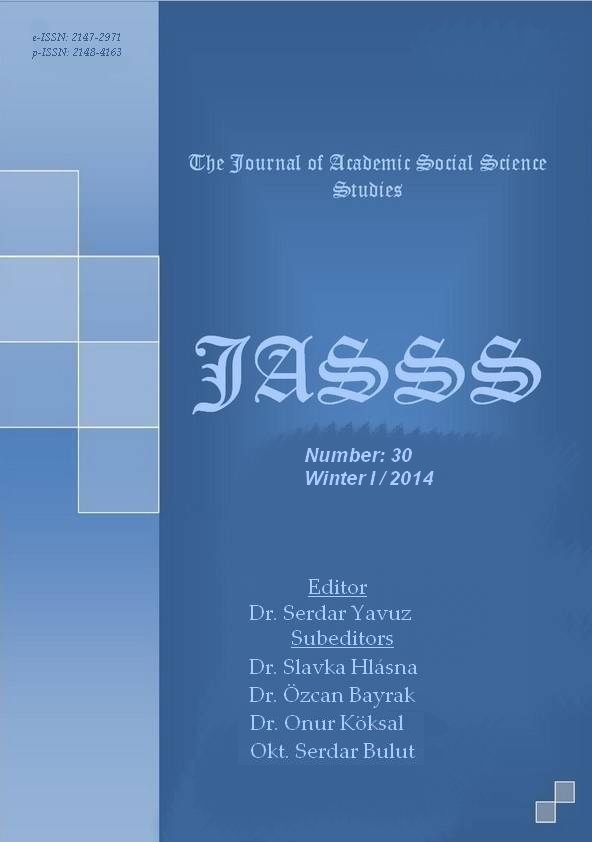Author :
Abstract
Bu çalışma, Fen ve Teknoloji öğretmenlerinin bilgi iletişim teknolojileri kullanımına karşı tutumlarını tespit etmek ve BDÖ etkinlikleriyle gerçekleştirilen Fen ve Teknoloji dersinin öğrencilerin tutum ve başarılarına etkisini araştırmak amacıyla yapılmıştır. Çalışma, yirmi Fen ve Teknoloji öğretmeni ile bir ilköğretim okulunun toplam 58 öğrencisiyle yürütülmüştür. Çalışmada öğretmenlerle Fen ve Teknoloji dersinde bilgi ve iletişim teknolojilerini kullanma düzeyleri ve tutumları hakkında yarı yapılandırılmış mülakatlar gerçekleştirilmiştir. Mülakat yapılan öğretmenlerin içinden gönüllü olan bir Fen ve Teknoloji öğretmeninin, dersleri 3 hafta, haftada 4’er saat deney ve kontrol grubu olmak üzere gözlenmiştir. Tüm dersler video kaydına alınmıştır. Deney grubunda Kimyasal Bağlar konusu, çeşitli bilgi ve iletişim teknolojilerinden faydalanarak öğretim yapılmıştır. Nicel veriler, Bilgisayar Tutum Anketi (BTÖ) ve Kimyasal Bağlar Başarı Testi (KBBT) ön test ve son test olarak uygulanan verilerden elde edilmiştir. Nitel veriler betimsel analiz yöntemi, nicel veriler ise ortak değişkenli çoklu varyans analizi (MANCOVA) ile analiz edilmiştir. Çalışmanın sonucunda, kimyasal bağlar konusunda BDÖ kullanımının öğrencilerin başarılarına etkisi anlamlı bulunurken, bilgisayar kullanımına karşı tutumları arasında anlamlı bir fark bulunamamıştır. Elde edilen nitel verilere göre ise öğretmenlerin bir kısmının bilgi iletişim teknolojilerinden yararlan(a)madıkları ve olumsuz tutum içerisinde oldukları görülmüştür. FATİH projesiyle tüm okullarda teknoloji kullanımı hedeflenmesine rağmen mevcut durum değerlendirildiğinde bu durumun pek de mümkün olmadığı görülmektedir. Projenin başarılı olabilmesi için öğretmenlerin teknolojiyi kullanmama sebepleri irdelenmelidir.
Keywords
Abstract
The purpose of this study; to detect science and technology teachers' attitudes towards using information and communication technologies and to determine attitudes and achievements of the students towards Science and Technology courses using computer aided instruction (CAI). Study, was carried out 20 science and technology teachers with total of 58 students from an primary school. The study semi-structured interviews were conducted with teachers about level and attitudes using information and communication technologies in science and technology courses. A Science and Technology teacher was volunteer who interviewed teachers within was observed course of 3 weeks, 4 hours per week, including experimental and control group. All courses are taken to record the video. In the experimental group Chemical Bonds subject carried out various taking advantage of information and communication technologies. Quantitative data, Chemical Bonds Achievement Test and the Computer Attitude Scale were obtained from the data applied as pre-test and post-test. In addition,qualitative data were analyzed by descriptive analysis method and the quantitative data were analyzed by multivariate analysis of variance (MANCOVA). Result of the study, While Chemical Bonds subject was found significant effect on students' achievement of CAI, attitudes toward using computers was not found significant difference. It was seen a portion of the teachers participating in the study could (not) benefit and have negative attitudes towards Information and Communication Technologies. When FATİH project aims to use technology in all schools, although the current situation seems to be hardly possible to assess the situation. The reasons teachers not to use technology for the project to be successful must be examined.





